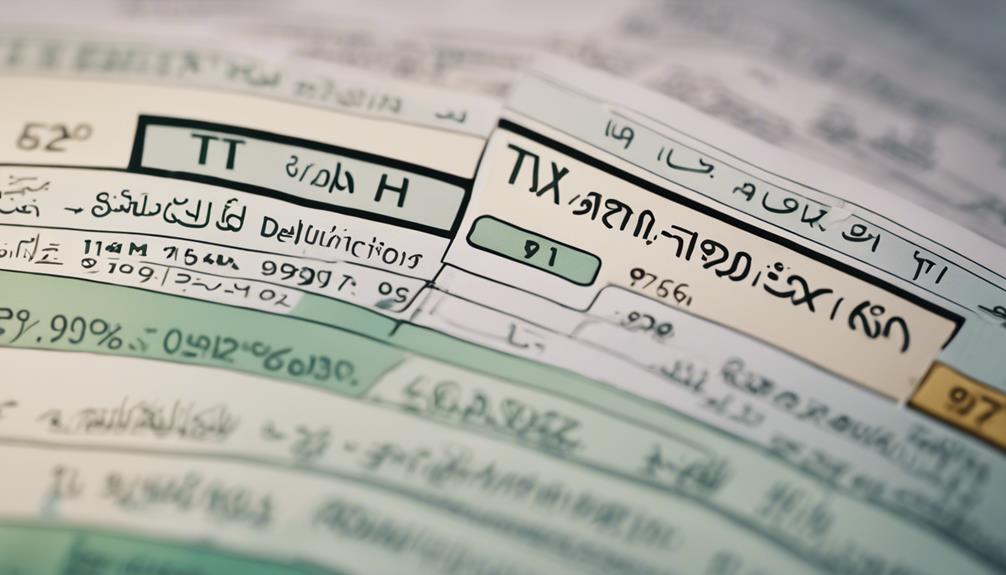In navigating the intricate landscape of taxation in Saudi Arabia, understanding the key taxes is foundational. From Value-Added Tax (VAT) to Corporate Income Tax, each levy plays a crucial role in the fiscal framework of the Kingdom.
Delving into the nuances of these taxes can provide a comprehensive view of the financial obligations for individuals and businesses operating within Saudi Arabia. However, it is the subtle intricacies of the tax system that truly reveal the depth of compliance and the implications for taxpayers.
Overview of Tax System in Saudi Arabia

Within the Kingdom of Saudi Arabia, the tax system operates under a distinct framework that shapes the country's fiscal landscape. Tax exemptions and deductions play a crucial role in this system, offering relief to individuals and businesses. Tax exemptions in Saudi Arabia are granted in various sectors, such as agriculture, education, healthcare, and Islamic banking, to stimulate growth and development in these key areas. These exemptions aim to encourage investment, innovation, and economic diversification.
Moreover, tax deductions are instrumental in reducing the taxable income for individuals and corporations. They help in promoting specific activities that the government deems beneficial for the country's economy. For instance, deductions may be applied for expenses related to research and development, charitable contributions, or investments in certain industries. By utilizing tax deductions effectively, taxpayers can optimize their financial positions while contributing to the overall economic progress of Saudi Arabia.
Understanding the nuances of tax exemptions and deductions is essential for navigating the intricacies of the Saudi Arabian tax system and ensuring compliance with regulations.
Value-Added Tax (VAT) Explained
Value-Added Tax (VAT) is a consumption tax levied on the value added to goods and services at each stage of production and distribution. In Saudi Arabia, the standard VAT rate is 15%, with certain goods and services being exempt from VAT. Essential items such as healthcare, education, and financial services are typically exempt from VAT to ensure that basic necessities remain affordable for the general population.
Businesses that meet the annual VAT threshold are required to register for VAT with the General Authority of Zakat and Tax (GAZT) in Saudi Arabia. The VAT registration process involves submitting the necessary documentation, such as financial records and business information, to establish compliance with VAT regulations. Once registered, businesses are responsible for charging VAT on taxable supplies, maintaining proper VAT records, and submitting periodic VAT returns to the tax authorities. Failure to comply with VAT regulations can result in penalties and fines imposed by the GAZT.
Understanding VAT exemptions and adhering to the VAT registration process is essential for businesses operating in Saudi Arabia to ensure legal compliance and avoid potential financial liabilities.
Corporate Income Tax Breakdown

In addition to Value-Added Tax, businesses operating in Saudi Arabia must also navigate the complexities of the Corporate Income Tax system. This system involves a detailed breakdown of taxable income and rates applicable to different types of entities. Corporate tax rates in Saudi Arabia are generally set at a flat rate of 20%. However, certain industries may be subject to different rates. For instance, entities operating in the oil and hydrocarbon sector are typically taxed at a rate of 50%.
When it comes to tax deductions, businesses in Saudi Arabia can benefit from various allowable expenses that can be deducted from their taxable income. These deductions may include expenses incurred for the purposes of generating income, such as operating costs, salaries, and depreciation of assets. By leveraging these deductions effectively, businesses can lower their taxable income and, consequently, reduce their corporate income tax liability.
Understanding the nuances of the corporate tax rates and maximizing eligible deductions is crucial for businesses looking to optimize their tax position in Saudi Arabia.
Withholding Tax in Saudi Arabia
A crucial aspect of the tax framework in Saudi Arabia is the imposition of withholding tax on certain types of income. Withholding tax is deducted at the source of income, ensuring that the government receives tax revenue upfront. In Saudi Arabia, withholding tax is applicable to various types of payments, such as dividends, interest, royalties, and technical service fees.
Tax exemptions may apply based on specific criteria outlined in the tax laws of Saudi Arabia. It is essential for businesses and individuals to understand these exemptions to ensure compliance with the regulations. Additionally, Saudi Arabia has entered into tax treaties with several countries to prevent double taxation and provide relief for taxpayers. These treaties typically address issues such as the allocation of taxing rights between countries and the reduction of tax rates on certain types of income.
Special Taxes and Fees in Saudi Arabia

Special taxes and fees in Saudi Arabia play a crucial role in the country's revenue generation and economic policies. Import duties are one of the key special taxes imposed on goods entering the Kingdom. These duties vary depending on the type of goods and are an essential source of revenue for the government.
In addition to import duties, Saudi Arabia also levies a tourism tax on certain services and accommodations used by tourists. This tax is aimed at supporting the development of the tourism sector in the country and enhancing the overall visitor experience. The revenue generated from the tourism tax contributes to various tourism-related projects and initiatives.
Special taxes and fees are carefully designed to balance revenue generation with economic objectives. They not only provide the government with necessary funds but also serve as tools to regulate trade and promote specific sectors, such as tourism. Understanding these special taxes and fees is crucial for businesses and individuals operating in or visiting Saudi Arabia.
Frequently Asked Questions
Are There Any Specific Tax Incentives or Deductions Available for Small Businesses in Saudi Arabia?
Tax planning for small businesses in Saudi Arabia involves maximizing deductions for business expenses to reduce taxable income. While specific tax incentives may vary, businesses can often benefit from deductions related to investments, research, and development.
How Does the Tax System in Saudi Arabia Impact Foreign Investors Looking to Do Business in the Country?
The tax system in Saudi Arabia impacts foreign investors by providing investor protection through clear regulations and tax exemptions to promote economic growth. Compliance with tax laws is crucial for foreign investors to operate successfully in the country.
Is There a Difference in Tax Rates for Different Industries in Saudi Arabia?
Tax rates in Saudi Arabia vary across industries due to industry-specific taxes. This differentiation aims to promote economic growth, incentivize investment, and ensure equitable contributions based on sector profitability. Understanding these nuances is crucial for business planning.
What Are the Penalties for Non-Compliance With Tax Laws in Saudi Arabia?
Non-compliance with tax laws in Saudi Arabia can result in severe penalties, including fines, legal repercussions, and other consequences. It is essential for businesses to adhere to tax regulations to avoid facing such punitive measures.
How Does Saudi Arabia Ensure Transparency and Accountability in Its Tax System to Prevent Tax Evasion and Fraud?
Saudi Arabia ensures transparency and accountability in its tax system to prevent evasion and fraud by implementing robust reporting requirements, conducting regular audits, utilizing advanced technology for data analysis, and imposing severe penalties for non-compliance.
Conclusion
In conclusion, understanding the key taxes in Saudi Arabia is essential for individuals and businesses operating in the country.
The tax system includes Value-Added Tax (VAT), Corporate Income Tax, Withholding Tax, and various special taxes and fees.
By comprehending these taxes and their implications, individuals and businesses can ensure compliance with Saudi Arabia's tax laws and regulations, ultimately contributing to the country's economic development and stability.










